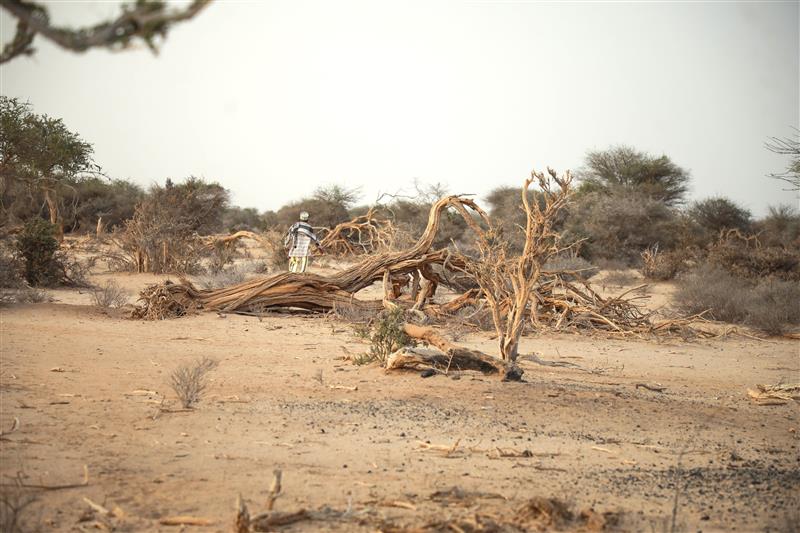
A new assessment by Islamic Relief aid workers in drought-hit Somaliland has found alarming levels of hunger and water shortages, with rising malnutrition and up to 70% of livestock dying in some villages.
Islamic Relief is scaling up its emergency response in the region to provide food, water and cash.
Some of the villages covered by Islamic Relief’s assessment in Awdal and Salal regions – the worst-affected coastal areas – have had no significant rainfall for two years, and hundreds of thousands of families are now at risk. Somaliland this week declared a national emergency, and the forecast for the upcoming rainy season is extremely poor, raising fears that the situation could massively deteriorate even further. There are fears that the drought will worsen across Somalia.
Aliow Mohamed, Islamic Relief’s Country Director in Somalia, says the assessment team found a shocking situation:
“We found massive food shortages and harrowing signs of malnutrition, especially among children, pregnant women and elderly people. Many people are emaciated, and some have already died from hunger. Families have had to leave their homes and are walking for days in search of food and water. Children are dropping out of school as the priority is now just on survival.
“People who used to eat three meals a day are now struggling to get just one. These communities are incredibly resilient but two years with almost no rain has pushed them to the edge. Families are sharing food with those who are even worse off than themselves, or reducing the size of their meals. The communities here depend on their livestock for food, income and transport, but in some villages more than half of animals have died and the rest are weak, forcing families into destitution and debt.
“These communities urgently need aid to save lives and livelihoods. Islamic Relief is providing clean water, food, and cash to support local markets. But much more is needed or we will be looking at a catastrophe over the coming months.”
In one village Islamic Relief’s assessment team found over 70% of the community’s livestock has died, while in others more than 50% have died. Goats and sheep make up most of the dead livestock, but even camels – which are extremely resilient to drought – are now perishing.
Local water sources have dried up. In one village, Hilawle, the nearest water supply is now over 15 kilometres away. The community has organised trucks to bring in water, but it’s an expensive and temporary solution.
Somalia is at the forefront of the global climate crisis, facing an increase in the frequency and severity of extreme climate-induced events such as droughts and floods.
Droughts are becoming longer and more severe, destroying crops and food production and displacing people from their rural homes into overcrowded urban areas.
Emergency aid is desperately needed now, but communities also need support with longer-term solutions to adapt and protect livelihoods and develop sustainable water systems.
Rich and high-polluting nations that contribute the most to the climate crisis have a moral and legal responsibility to increase financing for vulnerable nations such as Somalia – but global aid cuts have undermined the response to the drought. The humanitarian response in Somalia is critically underfunded and more than halfway through the year, Somalia’s UN-led 2025 Humanitarian Needs and Response Plan has only 16% of the funding it needs.
Islamic Relief has worked in Somalia since 2006. The organisation provides emergency aid during war, floods and droughts; and supports sustainable long-term development such as constructing boreholes to improve water supply and irrigation in arid areas, supporting women-led small businesses, and helping increase farmers’ productivity.



